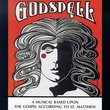| All Artists: Andrew Lippa Title: The Wild Party (Original Off-Broadway Cast) Members Wishing: 0 Total Copies: 0 Label: RCA Victor Broadway Original Release Date: 7/11/2000 Release Date: 7/11/2000 Album Type: Cast Recording Genres: Pop, Soundtracks, Broadway & Vocalists Style: Musicals Number of Discs: 1 SwapaCD Credits: 1 UPC: 090266369522 |
Search - Andrew Lippa :: The Wild Party (Original Off-Broadway Cast)
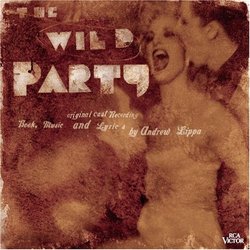 | Andrew Lippa The Wild Party (Original Off-Broadway Cast) Genres: Pop, Soundtracks, Broadway & Vocalists
Some 70 years after being written, Joseph Moncure March's 1928 Jazz-Age poem, The Wild Party, proved it still knew how to inspire: a pair of musicals dedicated to the sultry tale of excess were produced virtually concurren... more » |
Larger Image |
CD DetailsSynopsis
Amazon.com Some 70 years after being written, Joseph Moncure March's 1928 Jazz-Age poem, The Wild Party, proved it still knew how to inspire: a pair of musicals dedicated to the sultry tale of excess were produced virtually concurrently. Too bad good parties, like good jokes, are often hard to recount. While the Tony-nominated, star-studded, and short-lived Wild Party by Michael John LaChiusa embraced the dark side of the Prohibition-era fête, this off-Broadway production by Andrew Lippa tries too hard to have a good time. March's poem is a seething, seedy work filled with internal struggle, but on this disc we never sense that underbelly. It's not until Taye Diggs, as Black, sings the touching "Poor Child" that we sense any tenderness at all in this morality play. For lighthearted good times, Julia Murney as Queenie and Brian d'Arcy James as her abusive lover Burrs do the job. On the fun, upbeat numbers ("What a Party," "Raise the Roof") this cast shines. But, despite its fascinating premise--a life-changing, epic event in the lives of a bunch of Prohibition-era misfits--this musical somehow still suffers from shallowness. --Jason Verlinde Similarly Requested CDs
|
CD ReviewsAndrew Lippa's WILD PARTY -- alive & well & unforgettable! Robert Lopez | 07/11/2000 (5 out of 5 stars) "Wow. The life of this exuberant and passionate WILD PARTY has translated so well to CD. Having seen the show at Manhattan Theatre Club earlier this spring, I can tell you that this recording is simply amazing. The voices are tremendous, especially Julia Murney (Queenie), who's heartbreakingly expressive as she sings "Maybe I Like It This Way" and lights a diva fire with "Raise the Roof". Idina Menzel (Kate) rocks the house with "Life of the Party" and "Look at Me Now." Brian D'Arcy James voice is completely magnetic as he portrays of Burrs, Queenie's abusive lover -- when he unravels during "Let Me Drown" (those of us who saw the show) you know this was one of the great moments of this year's theater season. Taye Diggs played Black -- and his voice is just a slice of heaven! When these four sing "Poor Child" -- it's mesmerizing to hear their voices weave over one another as they express their different points of view. The number is vaguely operatic, yet completely accessible. The CD has almost every number from the show (with the exception of one song, I think) -- and you can pretty much follow the story by listening along. Of course at some point, you'll probably feel like hitting your kitchen dance floor on ensemble numbers like "Wild, Wild Party" or "The Juggernaut"!What more can I say? These are real songs that stick with you, long after you've left the theater or turned off the stereo. This is stuff you want on full blast at your own Wild Party! Enjoy!" A Party Well Worth Attending Jason D. Witte | Kansas City, MO | 10/18/2000 (5 out of 5 stars) "Already a fan of Andrew Lippa's exquisite "john & jen," I knew that he was a gifted composer. But I don't think anything could have prepared me for the blazing score that is "The Wild Party." If more composers and lyricists had half of Lippa's gift for melody and lyrics, his energy, and his enthusiasm, musical theatre would have the same vibrancy it did in the so-called Golden Age of Broadway. Lippa is definitely a force to be reckoned with, and as long as he continues to work in musical theatre, we who are fans of that art form will have much to enjoy and savor. I would even go so far as to say that Lippa may be the true heir apparent to Sondheim: this is a score that not only entertains and delights, it is also provocative and intelligent. Lippa's music is endlessly brilliant. These are songs that get my adrenaline pumping, and make me want to get on my feet and dance. I play it in my car and find myself pounding away on the steering wheel and dashboard, accompanying the rhythms that drive and invigorate the music. These are melodies that are instantly memorable, burning themselves into the brain as soon as they are heard. Michael Gibson's orchestrations are delightfully funky and idiosyncratic -- I mean, electric guitar in a roaring 20s musical? -- and are the perfect complement to Lippa's music. His lyrics are entertaining and playful, and rest easily on the music -- repeated listenings aren't necessary to understand and follow the lyrics. The standout song lyrically is, for me, 'An Old-Fashioned Love Story,' it is at once hysterically funny and wistfully sad. The pacing of the songs is impeccable, no doubt due to Lippa's book, with great balance between full-throttle beltable songs and quietly reflective songs, and as a result the listener is not worn out by too many high energy songs in a row. Lippa also wisely keeps the focus on the four central characters, only occasionally drawing attention to the supporting characters. At the same time, these supporting characters aren't two-dimensional -- they are given their due in the ensemble numbers, but only rarely are any of them given their own numbers. I am reminded of Sondheim's focus on George and Dot in "Sunday in the Park with George." Along with "The Secret Garden," this is the best ensemble work I have heard. The four leads -- Taye Diggs, Brian d'Arcy James, Idina Menzel, and Julia Murney -- are all gifted with gloriously expressive voices, at once belters and character singers. Their quartet in 'Poor Child,' is perfectly balanced, their voices weaving in and out of one another's, creating an astounding vocal tapestry. The other performers who are given solo work, especially the showstopping Alix Korey as Madeline, are equally as brilliant as the leads. And when the entire company is singing -- most notably in 'A Wild, Wild Party' -- the result is nothing short of electrifying. In "The Wild Party," Andrew Lippa has not only created an ectrifying and memorable score, he catapaults to the forefront of the up-and-coming generation of composers. Adam Guettel, Michael John LaChiusa, and Jason Robert Brown, as good as you guys are, watch out: Andrew Lippa has finally arrived, and as long as he continues in musical theatre, you three have incredible competition." A Wild, Wild Party Michael A. Benedetto | New York, NY USA | 07/12/2000 (5 out of 5 stars) "It shouldn't be a slur to point out that this was the more lightweight of this season's two WP musicals. Where Michael John LaChiusa's version succeeded by grounding the story in the context of the twenties (including the characteristic sounds), Andrew Lippa's just sets out to have a darn good time. And that it does. While the tragedy of the story is not underplayed (indeed, it's really vivid in the lead performances of Julia Murney, Taye Diggs, Brian D'Arcy James and Idina Menzel), there's an irrepressible optimism bubbling away underneath it, palpable in such numbers as "Raise the Roof," "A Wild, Wild Party," and Alix Korey's outstanding solo "An Old-Fashioned Love Story".Given that the more reflective numbers are just as memorable (with "Maybe I Like it This Way," "What Is it About Her?" and "How Did We Come to This?" the standouts), this is one dazzling disc. Much of the score is omitted to fit a single CD (most of it recitative and dance music), but those unfamiliar with the show shouldn't notice a thing.And who'll be able to resist playing the two PARTYs back to back?"
|

 Track Listings (21) - Disc #1
Track Listings (21) - Disc #1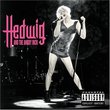
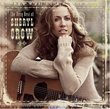
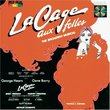
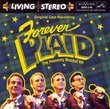
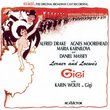
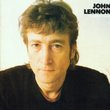
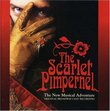
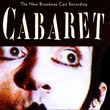
![Sly & the Family Stone - Greatest Hits [Epic]](https://nationalbookswap.com/cd//m/63/8263/18263.jpg)
